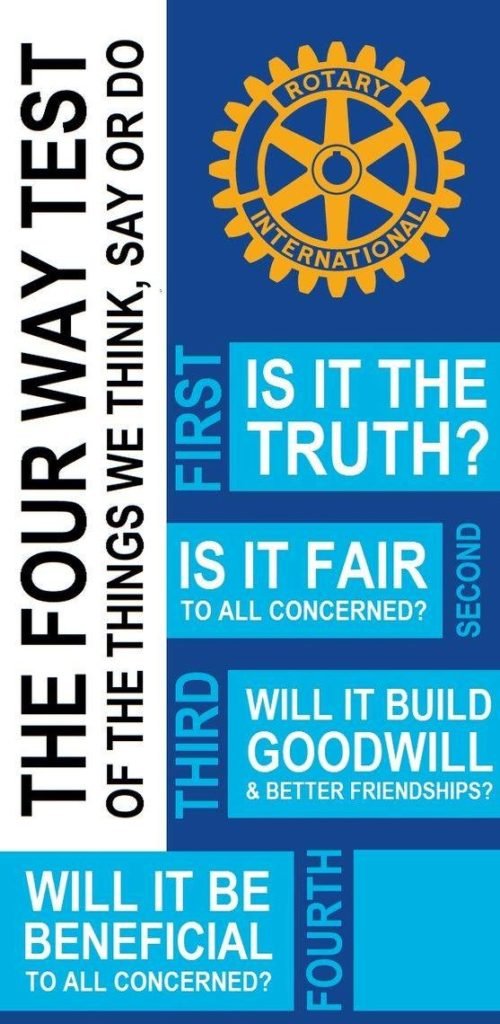Rotary’s Four-Way Test – The Moral Compass for the Things We Think, Say or Do
The Four-Way Test is an ethical guideline that has been a cornerstone of Rotary International’s philosophy since its introduction in the 1930s. It is a nonpartisan and nonsectarian approach that Rotarians utilize for their personal and professional relationships, as well as in their community service efforts.
The Four-Way Test was created in 1932 by Rotarian Herbert J. Taylor when he was tasked with saving the Club Aluminum Products distribution company from bankruptcy. It was later adopted by Rotary in 1943 and has been translated into more than 100 languages.
The Four-Way Test
As Rotarians, in the things we think, say and do, the Four-Way Test compels us to consider four straightforward questions:
- Is it the TRUTH?
- Is it FAIR to all concerned?
- Will it build GOODWILL and BETTER FRIENDSHIPS?
- Will it be BENEFICIAL to all concerned?
Over the years, Seaside Rotarians have added an unofficial but important 5th Test…
- Will it be FUN?
These simple questions serve as a moral compass for the actions and decisions of Seaside Rotarians and Rotarians worldwide. They guide Rotarians in their quest to provide service to others, promote integrity, and advance understanding, goodwill, and peace.
The Four-Way Test is a reflection of the ideals that Rotary stands for. Its simplicity and universal applicability have made it a powerful tool, enabling Rotarians to serve effectively while maintaining high ethical standards in their personal and professional lives.


